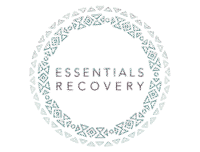Recovery from addiction is often viewed primarily as stopping substance use, but true healing goes much deeper than just physical sobriety. Emotional healing is a crucial part of recovery that addresses the feelings, traumas, and mental health challenges that often underlie addictive behaviors.
Addiction can be both a symptom and a cause of emotional pain. Many individuals turn to substances to cope with difficult feelings like anxiety, depression, shame, or grief. Without addressing these underlying emotional wounds, maintaining long-term recovery becomes much harder.
Emotional healing involves recognizing, processing, and learning to manage these feelings in healthier ways. It’s about rebuilding a sense of self-worth, trust, and balance. When emotional healing is prioritized alongside sobriety, individuals are more likely to experience lasting transformation.
Why Emotional Pain Often Drives Addiction
Addiction frequently masks deeper emotional struggles. Feelings of loneliness, trauma, rejection, or loss can become overwhelming. Substances may provide temporary relief by numbing pain or creating a sense of connection and control.
Unfortunately, this relief is fleeting and often worsens emotional distress over time. The brain’s reward system becomes hijacked by substance use, making it difficult to cope with emotions naturally. People find themselves trapped in a cycle where emotional pain leads to use, which then intensifies emotional pain.
Recognizing this cycle is essential for recovery. Emotional healing helps break the pattern by providing tools to process feelings without turning to substances.
The Role of Therapy in Emotional Healing
Therapy plays a central role in emotional healing during recovery. Different therapeutic approaches offer safe spaces to explore feelings, confront trauma, and develop coping skills.
Cognitive-behavioral therapy (CBT) helps identify and change harmful thought patterns that fuel emotional distress and addiction. Trauma-informed therapy addresses past wounds that may be driving substance use. Dialectical behavior therapy (DBT) teaches emotional regulation and mindfulness.
Group therapy and support groups also offer emotional healing by providing connection and shared understanding. Knowing others face similar struggles reduces isolation and builds empathy.
Therapy is not about “fixing” someone but about guiding them toward self-awareness and resilience.
Healing Emotional Trauma
Many people in recovery carry unhealed trauma, which can include abuse, neglect, accidents, or other distressing experiences. Trauma often leaves emotional scars that affect how a person relates to themselves and others.
Trauma-informed care recognizes that trauma impacts brain function and behavior. It emphasizes safety, trustworthiness, and empowerment in treatment. Healing trauma is a gradual process that may involve specialized therapies like EMDR (Eye Movement Desensitization and Reprocessing) or somatic experiencing.
Addressing trauma reduces triggers that lead to relapse and helps individuals reclaim control over their emotions and lives.
Developing Emotional Awareness and Expression
A key part of emotional healing is learning to identify and express feelings honestly and constructively. Many people with addiction struggle with emotional numbness or suppression, often because their emotions have been overwhelming or unsafe to express.
Practicing emotional awareness helps individuals recognize what they are feeling in the moment. This awareness creates space for reflection rather than impulsive reactions. Expressing emotions—whether through talking, writing, art, or movement—helps release built-up tension and fosters connection.
Healthy emotional expression builds confidence and strengthens relationships, making recovery more sustainable.
Building Self-Compassion and Forgiveness
Addiction often leaves people with deep feelings of guilt, shame, and self-judgment. Emotional healing includes learning to treat oneself with kindness and understanding rather than harsh criticism.
Self-compassion involves recognizing that suffering and mistakes are part of being human. It helps reduce the cycle of shame that can trigger relapse. Forgiveness—both of oneself and others—frees individuals from past burdens and opens the door to emotional freedom.
Developing these attitudes takes time and often requires support from therapists, peers, or spiritual practices. But self-compassion is a foundation for lasting recovery.
Creating Healthy Emotional Boundaries
Emotional healing also means learning to set and maintain healthy boundaries with others. Addiction can blur boundaries, leading to codependency, enabling behaviors, or toxic relationships.
Establishing boundaries helps protect emotional well-being and supports personal growth. It teaches how to say no, ask for help, and prioritize one’s own needs without guilt. Healthy boundaries also promote respect and trust in relationships.
Recovery becomes stronger when emotional limits are clear and honored.
The Connection Between Emotional Healing and Physical Health
Emotional health and physical health are deeply interconnected. Chronic emotional distress can weaken the immune system, increase inflammation, and contribute to chronic conditions like heart disease or gastrointestinal problems.
In recovery, healing emotionally often leads to improvements in physical health. People sleep better, experience less stress, and have more energy. They are also more motivated to care for their bodies through nutrition, exercise, and medical care.
Taking a holistic approach that includes emotional healing supports the whole person and improves overall well-being.
How Mindfulness Supports Emotional Healing
Mindfulness practices are powerful tools for emotional healing. Mindfulness involves paying non-judgmental attention to the present moment, including thoughts, feelings, and bodily sensations.
By cultivating mindfulness, people in recovery can observe their emotions without getting overwhelmed or reacting impulsively. This awareness helps reduce anxiety and depression, common triggers for relapse.
Techniques like meditation, deep breathing, and mindful movement can be incorporated into daily life to support emotional balance and resilience.
The Importance of Support Systems in Emotional Healing
Emotional healing is not something people have to do alone. Support from family, friends, peers, and professionals plays a vital role.
Having trusted people to talk to, share experiences with, and rely on makes the emotional challenges of recovery more manageable. Support groups provide a sense of belonging and reduce feelings of isolation.
Therapists offer guidance and tools tailored to individual needs. Family involvement can foster understanding and repair strained relationships.
Strong support systems build a foundation for emotional healing and long-term recovery.
Overcoming Emotional Setbacks in Recovery
Emotional healing is a journey with ups and downs. It’s common to face setbacks, moments of doubt, or overwhelming feelings. These experiences do not mean failure; they are part of the growth process.
Learning to navigate emotional setbacks with patience and resilience is key. Strategies include reaching out for support, practicing self-care, and using coping skills learned in therapy.
Recognizing that healing is not linear helps reduce frustration and promotes persistence.
Conclusion: Emotional Healing as a Cornerstone of Recovery
Addiction recovery is much more than stopping substance use. Emotional healing addresses the root causes and consequences of addiction, fostering true transformation.
By working through emotional pain, trauma, and mental health challenges, individuals gain tools to build healthier lives and relationships. Emotional healing enhances self-awareness, compassion, and resilience—all essential for sustaining long-term recovery.
Recovery programs that prioritize emotional healing, alongside physical and behavioral treatment, offer the best chance for lasting success. For anyone on the path of recovery, embracing emotional healing is a vital step toward reclaiming a fulfilling and joyful life. Call us today at 855-509-1697.



